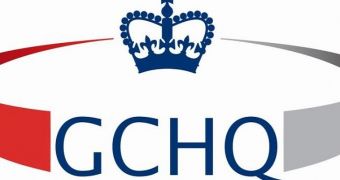Power is as addictive as a drug – there have never been truer words than in the case of the GCHQ and the NSA.
A new report coming from The Intercept covering leaked files from Edward Snowden shows that the GCHQ was allowed to access the PRISM database and the NSA’s bulk metadata collection of data during the London Olympics in 2012.
From there on out, the GCHQ has basically begged to get another dose, another chance at accessing the wide collection put together by the National Security Agency, a document from April 2013 reveals.
At the time, as the documents reveal, the NSA had yet to provide the GCHQ with such access, despite the Five Eyes agreement signed between the countries’ intelligence agencies.
Even so, the NSA didn’t seem to think this was a bad idea in any way and soon agreed to give the British spy more access to its files. As a reminder, PRISM is a system created and used by the NSA and the FBI to obtain the content of emails, chats, photographs, videos, and any other data processed by a series of tech companies, including Google, Yahoo, Microsoft, Facebook and Apple.
Basically, the GCHQ wanted to have access to millions of international phone calls and emails that the NSA gathered in one swoop. It’s unclear whether the NSA agreed to this or not, but they did seem to be supportive of the idea.
The file from Edward Snowden also reveals that the GCHQ was trying to hide its level of access to the NSA database from the Parliamentary watchdog.
The Intercept quotes Julian Huppert, a member of the British Parliament and part of the committee that was supposed to review a push from the government for more power to access private data before the Snowden files ended up in the media.
Huppert said that at no point during the process did the GCHQ disclose just how much access it had to PRISM and other NSA programs. The intelligence service also did not mention that it was seeking wider access to NSA data, even during closed sessions.
“It is now obvious that they were trying to deliberately mislead the committee. They very clearly did not give us all the information that we needed,” said Huppert.
Considering everything, he is urging for the implementation of more clarity on how the government oversees the actions of the intelligence agencies. “We need much more transparency about what is happening. And we need to revise our laws, because our laws clearly have too many loopholes in them,” he said.

 14 DAY TRIAL //
14 DAY TRIAL //